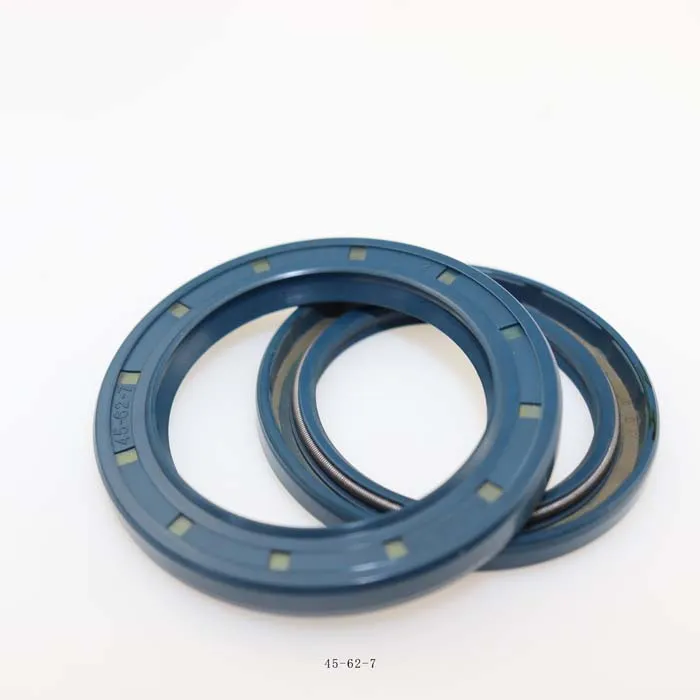10 月 . 18, 2024 00:08 Back to list
Choosing the Right TCV Oil Seal for Optimal Performance and Durability
Understanding Oil Seal TCV An Essential Component in Mechanical Applications
Oil seals, often referred to as grease seals or rotary shaft seals, are crucial components in various mechanical applications. One particular type is the TCV (Triple-lip Contact V) oil seal, known for its effective sealing capabilities and durability. In this article, we delve into the design, functionality, and applications of TCV oil seals, along with their advantages and maintenance considerations.
Design and Structure
The TCV oil seal is designed with a triple-lip configuration, which distinguishes it from traditional oil seals, typically featuring a single or double lip. The triple-lip design allows for enhanced sealing performance by providing better contact with the shaft surface. The three distinct sealing lips create multiple points of contact, which significantly reduces the risk of oil leakage.
The primary components of a TCV oil seal include the outer metal casing, which serves as a mounting mechanism, and the elastic sealing lip made from materials like nitrile rubber or fluorocarbon. These materials are chosen for their excellent resistance to oil, temperature, and various environmental factors.
How TCV Oil Seals Work
TCV oil seals operate by creating a barrier between the rotating shaft and the external environment. When installed correctly, the sealing lips make contact with the shaft, preventing lubricant from escaping while simultaneously keeping contaminants such as dirt, dust, and moisture from entering the lubrication system.
The design of the TCV oil seal allows it to handle varying degrees of pressure and temperature, making it suitable for both high-speed and high-load applications. As the shaft rotates, the elastic nature of the sealing lip flexes against the shaft to maintain a seal even under dynamic conditions.
Applications of TCV Oil Seals
TCV oil seals are widely used across several industries, including automotive, aerospace, and industrial machinery. Some common applications include
1. Automotive Engines TCV oil seals are primarily used in engines to seal crankshafts and camshafts, preventing oil leaks that can lead to reduced performance and potential engine damage.
2. Mechanical Gearboxes In gear systems, TCV seals are employed to keep lubrication contained while shielding gears from contaminants, which contributes to the longevity and reliability of the assembly.
oil seal tcv

3. Hydraulic Systems In hydraulic applications, TCV oil seals help maintain pressure by sealing hydraulic fluids within cylinders, crucial for the efficient operation of heavy machinery.
4. Pumps and Compressors TCV seals are fundamental in various pumps and compressors, ensuring that fluids stay contained and pressure is maintained for optimal function.
Advantages of TCV Oil Seals
The use of TCV oil seals comes with numerous advantages
- Enhanced Sealing Ability The triple-lip design improves the sealing power over traditional single or double lip seals, minimizing the risk of leaks.
- Versatility TCV oil seals can be utilized in a wide range of applications and are adaptable to different fluid types.
- Extended Service Life The robust materials and design of TCV seals reduce wear and tear, extending their lifespan in various operating conditions.
- Cost-Effective Despite potentially higher upfront costs compared to simpler seal designs, TCV oil seals can lead to significant savings in maintenance and repair by preventing leaks and reducing downtime.
Maintenance and Considerations
To ensure optimal performance, TCV oil seals require regular inspection for signs of wear and tear. It is essential to monitor the sealing lips for any cracks or deformation. Proper installation is equally critical, as incorrect fitting can lead to premature failure.
In conclusion, TCV oil seals play a vital role in sealing applications across multiple sectors. Their innovative design and efficiency in preventing leaks make them an indispensable component in modern machinery. By understanding their function and advantages, engineers and mechanics can better appreciate the importance of this small yet significant part in maintaining the performance and reliability of mechanical systems.
-
The Power of Advanced Sealing: High-Pressure Solutions for Modern Machinery
NewsOct.29,2024
-
Optimizing Machinery with High-Performance Oil Seals
NewsOct.29,2024
-
Maximizing Machinery Efficiency with Advanced Oil Seals
NewsOct.29,2024
-
Ensuring Equipment Longevity with Quality Oil Seals
NewsOct.29,2024
-
Enhance Equipment Performance with Quality Oil Seals
NewsOct.29,2024
-
Custom Oil Seals for Specialized Machinery Needs
NewsOct.29,2024
-
The Role of Wiper Seals in Dust Sealing and Oil Protection
NewsOct.20,2024
Products categories
















